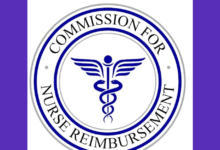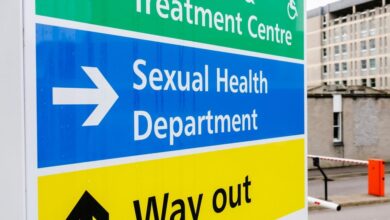Nurses in Northern Ireland consider quitting over poor pay

More than half of health and social care (HSC) workers in Northern Ireland have considered leaving their job due to poor pay and working conditions, a new survey has revealed.
The survey, published today by the union Unite, has highlighted the increasing pressure that HSC staff are under, amid a recruitment and retention “crisis” in the country.
It comes as nurses and their HSC colleagues prepare to join a day of mass industrial action in Northern Ireland tomorrow (18 January) over the ongoing lack of a pay offer in the country.
“Low pay in health has generated a deep crisis in staffing levels”
Sharon Graham
The Unite survey was sent out to more than 4,000 members belonging to the union and received 619 responses.
It revealed that 81% of HSC staff had frequently experienced staff shortages in the workplace.
Meanwhile, 76% of respondents reported patient care being compromised or unsafe, either regularly or occasionally, as a result of these staffing shortages.
One nurse respondent said: “Services are stretched to the point beyond repair at this stage.
“Staff not only are burnt out, disillusioned and frustrated, but there is little to no incentive for prospective staff to embark in a career in the NHS in my opinion.”
Nurses and other HSC staff reported working beyond their contracted hours, including missing rest breaks, working through lunch and unpaid overtime, with 58% saying they did this regularly.
When asked how often they had felt tired and stressed at work, 68% of respondents said regularly and 28% said occasionally.
One nurse said they had become overworked as they had “to make ends meet”.
“Though staff are already working too much, we have to work further extra shifts to make extra money to make up for all the living expenses that we have,” they explained.
Unite’s survey revealed that, over the last 12 months, 52% of HSC staff said that they had considered leaving their job altogether due to concerns about pay and workload.
Concerningly, just 21% said they had not considered leaving their HSC job for good.
These figures come as HSC staff and other public sector workers prepare to take to the picket lines tomorrow in Northern Ireland to protest the ongoing lack of a pay award in the country.
Nurses in Northern Ireland are still without a pay deal for 2023-24 or an improved offer for 2022-23.
Progress on putting forward an offer has been prevented for almost two years due to the collapse of power-sharing arrangements in Northern Ireland.
The Democratic Unionist Party (DUP) has been boycotting Stormont since February 2022 in defiance of post-Brexit policies affecting Northern Ireland.
Decisions around the country’s budget have therefore been in the hands of the UK Government’s Northern Ireland secretary, Chris Heaton-Harris.
As a result of his budgetary decisions, the Department of Health in Northern Ireland said it would be unable to make a pay offer to HSC staff.
Before Christmas, Mr Heaton-Harris put forward a financial package for Northern Ireland that would cover a public sector pay deal, but it will only be provided if Stormont is reformed.
Unite general secretary Sharon Graham said: “Low pay in health has generated a deep crisis in staffing levels.
“Scandalously the secretary of state for Northern Ireland Chris Heaton-Harris is refusing to release funds to at least deliver the meagre increase given to NHS workers in the rest of the UK.
“This survey confirms that the industrial action of health workers and that of public sector workers generally is not just about improving their own pay but to demand action on the staffing crisis which is undermining public services and compromising safety.”
The strike action tomorrow by public sector workers coincides with the legal deadline for Northern Ireland to form a government, otherwise fresh elections in the country will be called.
In a final attempt today to establish an executive, the Northern Ireland assembly was recalled and politicians gathered to try and elect a Stormont speaker, but failed to do so.
This means there has been no restoration of power-sharing institutions.
Commenting, Mr Heaton-Harris said: “It is disappointing that the assembly was unable to elect a speaker and restore the Northern Ireland executive today.
“The return of a locally elected, accountable and effective devolved government is the best way to govern Northern Ireland.
“However, in the absence of an executive, the government will proceed with a pragmatic and reasonable approach to support Northern Ireland.”







